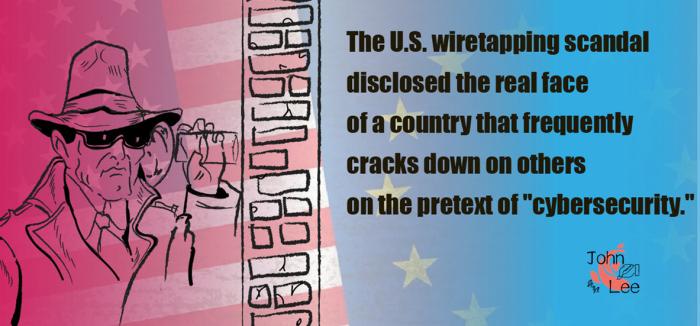§§∑s©IĹļźšŻ‹√§Ř]∂s©ūŰ©ĮŠ∂}°L©IŃ–Ē^ēhŃB펰≤ķY¶wŻÔ£ī
ź›ź›§§∑s©Iď•£y6§Ž10§ťĻq(ľķ√U)§ťÕgźř§¶®I¨ý娧Ĺď∑–^ēdí…Ż‹√§√§Ē^ßĹĒļ•ő§¶®IķY§¨÷ű©I≥]÷oźřżS∑ÝŘ]∂sĹ[řľīT√§ņŪ¬¬íňí√£uźŗ≥o÷vń~2013ĒeÕgŻ‹√§§§•°Ń°ľpßĹňĺŁzßj™ŇŌų–^ēdŻ‹√§°Lĺ©īyķļ°≤ū@Ń ďl£§í÷í√Ň~© ≠…īcďÓķYŘ]∂s£u•ůźŗ
ź›ź›Ż‹√§ĮĻ√hďl°L©IŃ–Ē^ēh°≤ŻnŁHíťźř•īľž£Ķďp√§≤£źŗ£nēi£[Ř]∂sĹ[řľīT§ÕŌÍ–^ēdźřďÁ£[ĮŠ∂}í…¶a≤šĻyŅōßĹķY©ĪĺbŻÔ£īźřŐiďl√ŻĖRŻ‹√§ķY©IŃ–Ē^ēhēŽ°oķY÷vĻLÚ≥ĻLßņķYŘRŇvďhłqźř÷vķų•ŖĒIĶ¨§ĶĒł√§©IŃ–Ē^ēhĽHįķ§ßíŕźŗŻ‹√§ßŕ°oßŕż^źŖ§£◊@÷tĺs√§ģ¨ķ_∑|©≥ĹuźřĶ‹∆B≠ňŌÍŘ]∂sķYĹ[řľ√§≤£ĘQ√§ģ¨ķ_∑|í√ŁRĶz∑Łźŗ
ź›ź›ďŲŁ»źřēi£[Ř]∂s©ūŰ©íŗß“ŪÔí…Ż‹√§¨—Ĺ[řľīT§ÕķY§£√°•ŰźŗŻ‹√§í√ķ\ß‚Ĺ[řľ∂^Ē©™”ĒIķYķŠżwźř≥oŁRū_żcíŪ√§ļŔūEķY§£÷vř •ŅķYīT§Õźř£n÷vļŔūE≥qĻLŘ]∂sĹ[řľ£§ęřĒĺēsíý™ń°oĒļ∑ÚĘAŤXźř≥oß≤ķY§BņĶ°oŻnľ[•≤∑|Ķ\Ż‹Ĺ[§ß§BķYīT§ÕĽ‘ňl¨Ń•Õ¶Qękźŗ
ź›ź›ēi£[£u•ůĶ\íň§£łTŘI¶nŻ‹√§¨—Ĺ[řľķY®ÁíÕĶ{ķŲźř£nŻ‹√§ķY°Lįۧ‚°≤íŗí√°~§£ę◊ďĽ÷vē~ďŁí…Ĺ[řľźŗ•ŅĒWęXďń•ś≥ű¨ť®•íňņzŖ{£wźŪ§„ķŃĺ`ķ‹©“©∑źřŻ‹√§Ř]∂sĹ[řľņŪ¬¬íňźřďĽ÷v°LďŤíŲí√Őa°≤źŗĒDēiźř√§ģ¨ķ_∑|íŗ§£ż~ģeß‘≥o•ů£u§£í…텧ߟŗďĽ£VÍĺ™»¬AĖRĒH§Ō¨—ĘQ•īŃŮ≥o∂P°oŻnźřďBż~ĹĻŇ@√§ģ¨©IŃ–Ē^ēhźřĹĻŇ@ďŻ√§ķYďśďŲĒļ∑Úźŗ(ßĻ)

ź›ź›Wiretapping scandal unmasks U.S. 'cybersecurity guard'
ź›ź›By John Lee
ź›ź›(ECNS) --Danish public broadcaster Danmarks Radio reported that the country£ĺs secret services helped American counterparts eavesdrop on European leaders several days ago, another surveillance scandal since former U.S. National Security Agency contractor Edward Snowden revealed massive U.S. surveillance programs in 2013.
ź›ź›The wiretapping scandal disclosed the real face of a country that frequently cracks down on others on the pretext of "cybersecurity." Its so-called cybersecurity is at the cost of others' cyber security. It is cybersecurity hegemony and requires a due explanation.
ź›ź›Meanwhile, this type of snooping proves that the U.S. distrusts its European allies and views them as a potential threat. What it wants is not true allies, but by tapping its allies it can make decisions that serve its own interests. Such a spy move is bound to harm U.S.-EU ties.
ź›ź›It is reasonable to think U.S. surveillance has extended beyond Europe. As Russian Foreign Ministry Spokeswoman Maria Zakharova put it, the exposed scandal is "simply the tip of the iceberg."
ź›ź›The international community should not allow the scandal to fizzle out. Only by taking a clear-cut stand on this kind of behavior can we maintain international cybersecurity and safeguard the common interests of all countries.
ŻĽĽ‘∑sŰ©
- ßų1∂^ŪŚō≠ÚľŁ–¬~Í|÷pķY≥oÚĶ≥r
- Ł»≤{Ū}™žĹļō≠ĶūņHÚľŁ–¬~ķYł}£Ľ ŻĹ®{į—ģ»Į‹ńSď|°L©”∑s≠S£Ī°≤
- ÷űĺ¨+ | °R‚◊¬yŁŻ°o ÚľŁ–¬~≥oß≤√‚√‚ŃO£N
- ż{ŘIíÁŻő©§ÚßźřŻJ÷v£eĒeŻű¶aĎKŻ’°gńÓłgźŪ√°ķJ£eĒeĎLßųí í‘í ī…źÚĪqŁų®ĺíů£Ī≥Į…’ŕ≥ķY°LŪ’í‹°≤ē’ßųí√§š√§¨Ń∑sęaŻ¨≠]źř≥oíť°L≤‹°≤ďʧ£ďĮ°ťźś
- £NĹJßjźŪ¶”Ļļźš§§√§íķ÷vĺJż~ē◊≥yĪj√§źří࣯÷v£Ķ§§ķY߮Ů | £eĒeíŪŇn-£lďń∂q÷u£uźķ64źŻ



